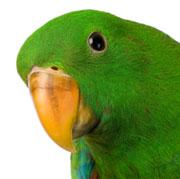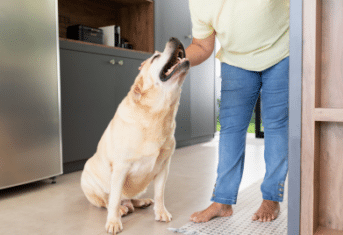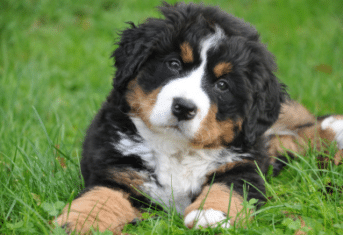Kitchen Catastrophes

Kitchen Catastrophes
New pet owners often ask their veterinarian, “What is the greatest danger to my pet? Is it the dog park, the sidewalk or being cat-napped?” It may come as a surprise to you, but your kitchen holds some of the greatest dangers for your pet.
Xylitol, a sweetener found in low-calorie foods, induces excessive insulin release in dogs. No one knows why insulin production ramps up in response to xylitol, but the result can be a fatal low blood sugar in your dog. Dogs consuming xylitol may experience vomiting, lethargy, lack of coordination progressing to seizures and liver failure. If your dog eats food containing xylitol, see a veterinarian immediately.
Dogs have a bit of a sweet tooth and often find grapes and raisins tasty. Tasty can turn into tragedy because some dogs develop kidney failure following consumption of even a few grapes or raisins. The toxin has not been identified, but a quick trip to the veterinarian and a short hospital stay can help prevent long-term kidney damage.
Both cats and dogs have red blood cells which can be damaged by ingestion of onions, garlic or garlic powder. Red blood cell damage can result in the need for a blood transfusion, so avoiding these ingredients in your pet’s diet is critical. Typically dogs get into onions by snacking from the trash can. On the other hand, cats may have problems if they are fed human foods flavored with garlic powder.
Birds love human foods too, but bird owners should be cautious about avocados, which can cause respiratory distress and death. Like in dogs and cats, the caffeine-like substance in chocolate can be dangerous for birds. Baking chocolate contains the most of the caffeine-like substance, dark chocolate somewhat less and white chocolate the least. Ingestion of the caffeine-like substance can cause hyperactivity, heart rhythm abnormalities and seizures. Too much salt is bad for all of us including birds, so it is best to keep the salty snacks on your plate rather than your bird’s.
The AMC recommends you check with your veterinarian before feeding your pets any human food. Keep these foods out of your pet’s reach and ensure that your garbage is not easily accessible by them as well. If your pet has ingested any foods that may be toxic you should contact your veterinarian immediately or call Animal Poison Control at (888) 426-4435, 24 hours a day.
_______________________________
For nearly a century, The Animal Medical Center has been a national leader in animal health care, known for its expertise, innovation and success in providing routine, specialty and emergency medical care for companion animals. Thanks in part to the enduring generosity of donors, The AMC is also known for its outstanding teaching, research and compassionate community funds. Please help us to continue these efforts. Send your contribution to: The Animal Medical Center, 510 East 62nd Street, New York, NY 10065. For more information, visit www.amcny.org. To make an appointment, please call 212.838.7053.


































